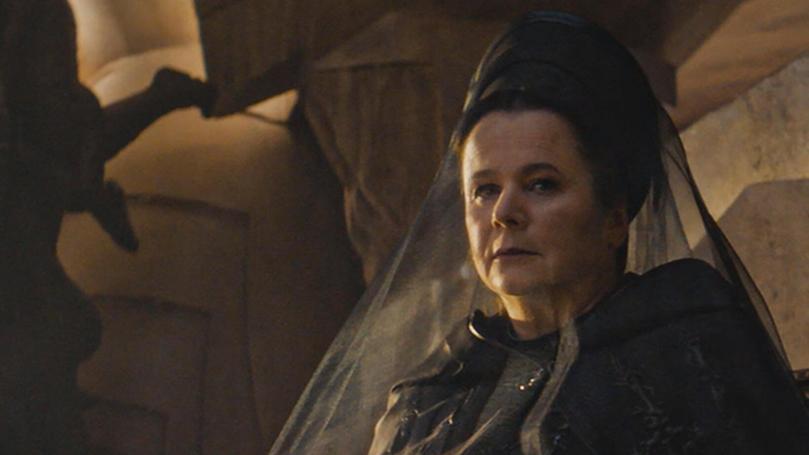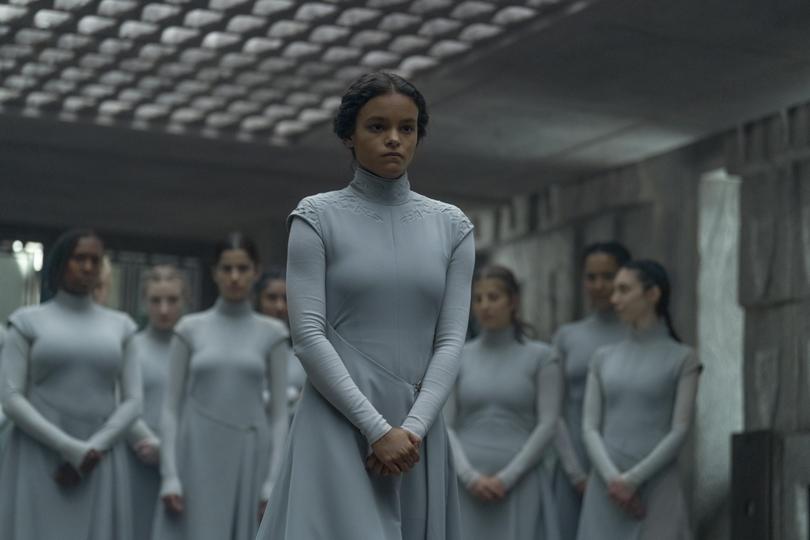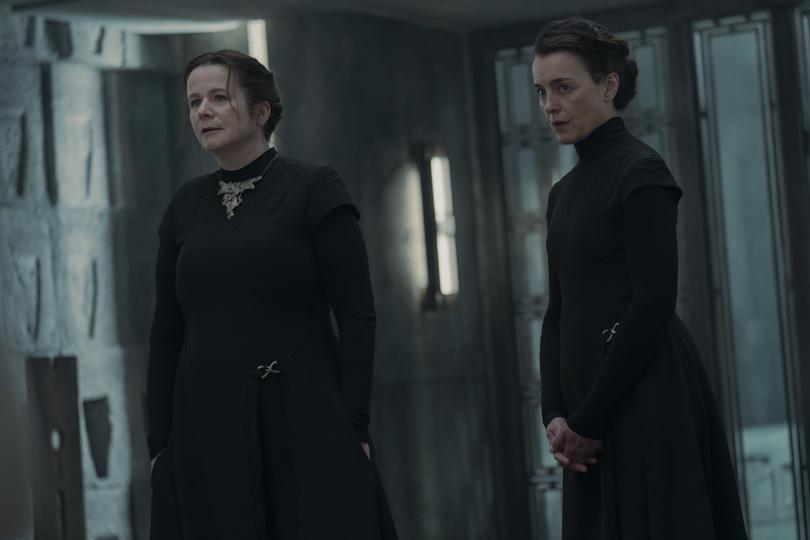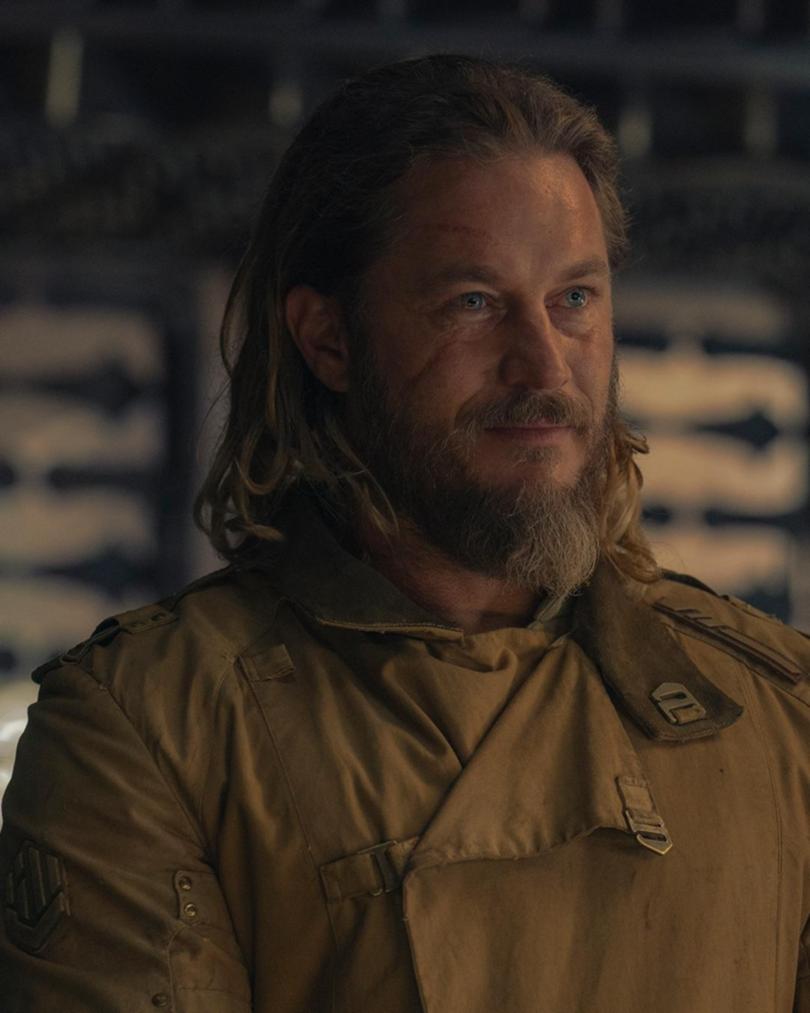Dune: Prophecy review: Grand prequel series shows much promise
A prequel series to Denis Villeneuve’s Dune movies and drawn from the weird world of Frank Herbert’s stories, Dune: Prophecy has a similar scale and ambition.

Given that Dune: Prophecy has been gestating in development for five years, expectations of it differ wildly.
There’s a part of you that’s hoping it’s going to be the most amazing Dune spin-off you could possibly expect, one that matches the thematic ambition and visual scope of Denis Villeneuve’s two feature films (thus far).
The other part is wary, even sceptical. Any project that has been through as many showrunners, writers and directors as Dune: Prophecy has risked being a patchwork of competing ideas built on top of one another.
Sign up to The Nightly's newsletters.
Get the first look at the digital newspaper, curated daily stories and breaking headlines delivered to your inbox.
By continuing you agree to our Terms and Privacy Policy.What it actually is, is neither. It definitely veers towards the more optimistic end of the spectrum than not but it doesn’t have the clarity and focus of Villeneuve’s films, particularly the first.
Dune: Prophecy is a compelling prequel series with scale and top performances, but it sometimes lacks a beating heart and is a little too concerned with mythology.

Admittedly, complex narrative world-building is what you’d expect from a series drawn from the universe imagined by sci-fi icon Frank Herbert and carried on by his son Brian Herbert and author Kevin J. Anderson. If the show is sometimes a little dense, it never promised it would be accessible for all.
Set 10,000 years before the events of the original Dune, the series pulls from the 2012 book Sisterhood of Dune by the younger Herbert and Anderson, although it does diverge at points.
The show tracks the foundation of the mysterious Bene Gesserit, the sect of women who manipulates the fate of the Imperium with its breeding program designed to birth the so-called prophecised saviour, a role that would eventually be filled by Paul Atreides in Dune.
The Bene Gesserit wield immense power in the Imperium as the truth sayers and unofficial advisors to emperors and heads of royal houses, so a story that explores its establishment has merit.
Setting the drama so far into the past also helps with the problem that plagues so many prequels which is when you know the ending, it’s hard to sustain dramatic tension. There’s enough of a gap that you don’t quite know where this specific story is going to go.

The main character is Valya Harkonnen (Emily Watson with Jessica Barden as the younger version), the ambitious daughter of a family that will go on to be Dune’s main villains. In the past, the Harkonnens are a minor family whose status has severely fallen due to a forefather and Valya is dead set on regaining their due respect.
Through the Bene Gesserit, she is able to influence political affairs to suit her agenda — exactly who she is serving — the sisterhood, the Harkonnen name or herself – is one of the story beats of Dune: Prophecy. In this, Watson is entrancing, always holding something back from the audience so we’re forced to lean in.
Valya’s sister Tula (Olivia Williams with Emma Canning as the younger version) seems to be submissive to her sibling but she has a sometimes chilling inner strength that is often overlooked. Tula is also, if anyone is, the heart of the show, the one character who seems to have the most to lose, emotionally.
The sisters and the Sisters are being challenged in their standing by Desmond Hart (Travis Fimmel), a mysterious soldier who claims to have survived being swallowed by one of desert planet Arrakis’s sandworms and now has a supernatural gift. He said his only loyalty is to the Imperium, but he’s a dangerous zealot with secrets.

Which makes him either useful or a threat to Emperor Corrino (Mark Strong), a middling leader trying to forge alliances by marrying his daughter Inez (Sarah-Sofie Boussina) off even though she is secretly making eyes at her sword master, Keiran Atreides (Chris Mason).
There are myriad more subplots, all of which tie back into the jostle for power in the Corrino court. If you like scheming and plotting, Dune: Prophecy serves it up in spades.
In the first four episodes made available for review (there are six in total), Dune: Prophecy shows promise, and there’s enough spice to make you want to come back or dive down an online rabbit hole exploring the many weird warrens of the Dune lore.
The production design and visual tone recall Villeneuve’s movies so there’s no doubt it is part of that world, and trying to form your own connections between this story and the one you already know is its own game.
While there is not yet much in the way of big action sequences, the series still projects grandness and scale, especially when it comes to the ambitions of those who seek to control the Imperium’s fate.
Dune: Prophecy is on Binge from Monday, November 18

